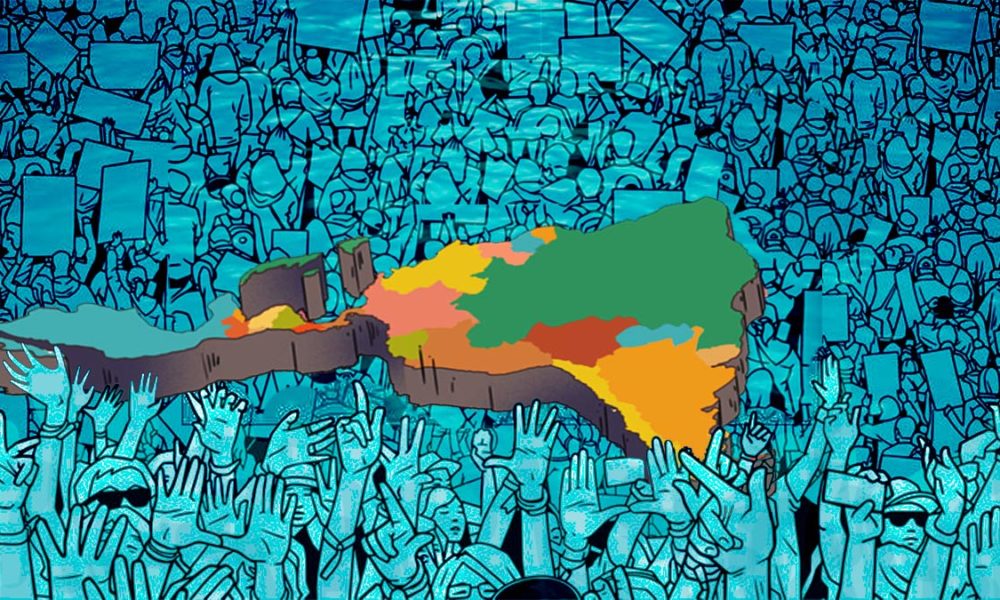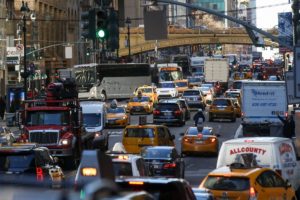
President-Elect Joe Biden recently declared “restoring America’s image globally and rebuilding our relations with allies…especially in Latin America,” as one of his top priorities in his upcoming presidential agenda. This focus comes on the heels of a series of tumultuous events in the region in 2019. Outraged citizens took to the streets in Ecuador, Chile, and Colombia due to the immense economic inequality and poverty present in their countries. A few miles over, frustration over corruption and a failed election led to months of violent uprisings in Peru and Bolivia.
“With regimes falling, governments fleeing capitals, and discontent rising, some fashioned it a “Latin Spring.” -The Atlantic
The Latin Spring is a vision that leaders of South America have heard for centuries. When Simon Bolivar first freed Bolivia from its Spanish colonization he claimed that one day, “all of South America would be free to reunite with one another.” Bolivar and other revolutionists in his time dreamt of a united, socialist South American continent. A place where borders between south American countries evaporated and trade between countries added to the economic stability of the region as a whole. A place where the entire country took to arms if a single region was threatened due to their commitment to unity. Current socialist leaders in Peru, Venezuela, and Bolivia have been echoing the dreams of their predecessors and encouraging citizens to share resources among themselves. Bolivia’s former President, Morales in a recent speech often mentioned his comradery with his “South American brothers and sisters.”
While the turbulence in the region during 2019 created the perfect environment for a revolutionary “Latin Spring,” the pandemic devastatingly hit South America and halted that hope. Multiple countries in the region have been dragged into deep recessions, “wiping away 20 years’ worth of poverty-reduction efforts and sending unemployment rates soaring.” With several countries in political and economic turmoil, Bolivia’s recent election developments have added another layer to a situation that is already teetering and unpredictable.
Bolivia’s current situation, however, is rooted in a figure that came to power nearly a decade ago. President Evo Morales was elected as President of Bolivia in 2006. Morales was the first Indigenous President of Bolivia despite the large number of indigenous voters in the country- which is indicative of the voter suppression and political oppression many indigenous Bolivian citizens face.
Morales began his presidency as a popular and admired figure. He was hailed as a role model by his indigenous supporters and seen as a “man of the people.” After serving for 14 years successfully, he insisted on running for a fourth term, which would violate the “term limits referendum” in the Bolivian constitution. Morales claimed he had won the election by a slight margin after running illegally and argued the opposing party committed election fraud. This claim was shot down by the OAS. However, it is becoming increasingly apparent that the OAS helped legitimize forces against Morales during the election- which could be interpreted as fraudulent foreign intervention and an unfair defeat for Morales. In retaliation, Morales began organizing his support base and urged them to revolt against “foreign forces silencing our people.” Morales’s opponents accused him of leading an organized coup and threatened he would face criminal charges if the claim was proven. An interim government was put in place for 11 months in order to help smooth over the chaos. Once Morales realized he was fighting a losing case, he fled to Argentina.
On October 18th, Bolivia conducted elections again and brought an end to the haphazard interim government that was in place. The new President of Bolivia is Luis Arce. Arce, often called by his nickname Lucho, is the protégé of Morales and leads the same party over which Morales once presided. Despite the accusations of corruption this party faced under Morales’ leadership, Arce won by a landslide. This victory has far-reaching impacts in Bolivia, Latin America, and international foreign policy.
Arce winning demonstrates the citizens’ support for socialism. This party’s win has been dubbed a major blow for neoliberalism in Latin America. The COVID-19 crisis in Latin America is highlighting the dangers of the weak and corrupt healthcare systems many countries have in place. For example, just a month earlier Bolivia’s health minister was arrested on suspicion of corruption related to the overpriced purchase of ventilators to fight COVID-19 before being sacked by interim President Jeanine Anez. A similar situation took place in Ecuador when the ex-president of the country was arrested for partaking in suspected embezzlement at a large public hospital. Corruption and fraud have plagued many South American governments for years, and millions of citizens have had to pay a heavy price during the pandemic.
The situation in Bolivia is being watched by the world due to its implications on Bolivian citizens and because it can be seen as a rough blueprint for other countries undergoing major changes as well. Bolivia’s citizens supporting a socialist party again and choosing to forget many of the party’s transgressions to support their socialist economic policies is a major signal. It shows that citizens are valuing equal access to resources over proven corruption and fraud claims. The U.S threatening to intervene in Bolivia and already partaking in swaying the most recent election is foreshadowing the U.S’s desire to increase democratic promotion in the region.
The idea of increased U.S intervention carries a threatening note for many South American countries. The U.S has interfered in Latin American politics for decades, citizens of the region often reject these interventions and see them as self-serving to the U.S and harmful to their own lives and interests. Helping to remove Evo was a major U.S controlled interference that Perviuan President Vizcarra claimed, “set a dangerous precedent for the upcoming years…that will not be tolerated.” With multiple countries in vulnerable economic and political situations, the U.S has a ripe chance to dictate the direction of this region.
While the U.S may have the means and opportunity to sway upcoming elections and political environments in the region- it does not mean that it should. In Bolivia, nearly half the country voted for Evo and supported his policies. Citizens argued that while Morales had flaws, the protests against him were aiming to change some of Evo’s actions- not the entire government. Many indigenous Bolivian citizens argued that the U.S intervention was unnecessary. And that the interim government encouraged by the U.S created the chaos the country experienced, rather than the U.S narrative that pins the chaos to Morales. This example of a misguided intervention by the U.S could be the beginning of a dangerous attempt for the U.S to hijack the “Latin Spring” and make it a calculated economically beneficial change rather than the revolution that many citizens are hoping for.
The outcome of Bolivia’s election and the subsequent reaction from the U.S will help us gauge how the world will react to the new Bolivian government despite U.S intervention. The reaction of citizens will help us determine how people react to socialist policy in a post-pandemic world. New challenges such as vaccine distribution will give the government a chance to demonstrate whether their “equal access” policies truly help citizens. Lastly, the development of U.S-Bolivia relations in the coming months can help us paint a picture of what to expect from the U.S when it comes to democratic promotion in Latin American countries in this decade.

